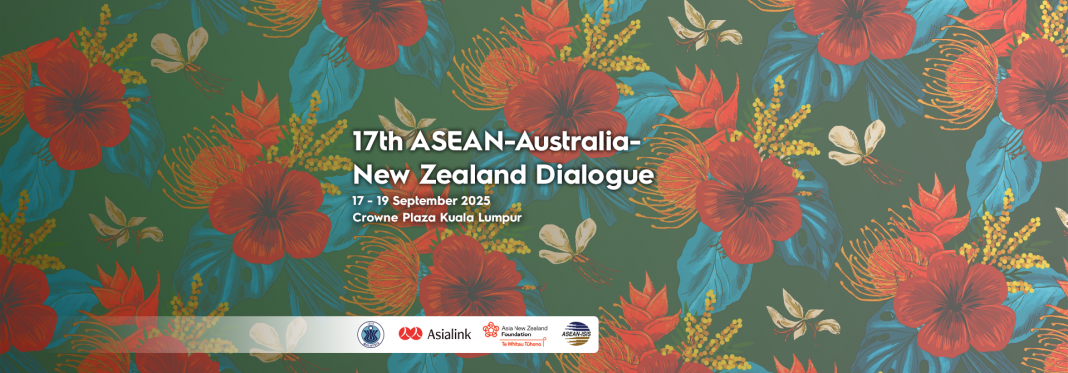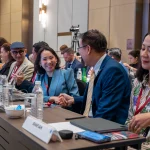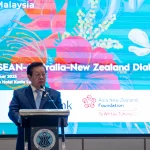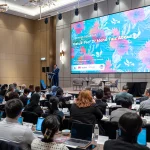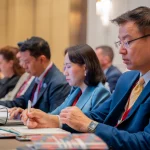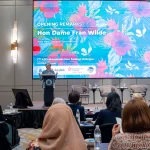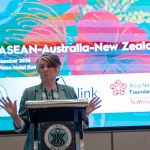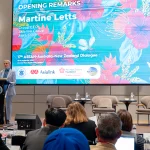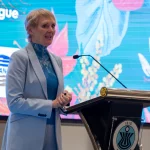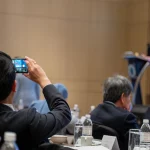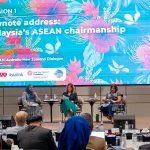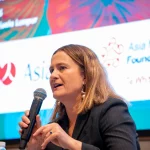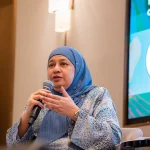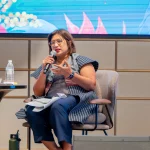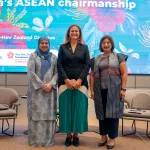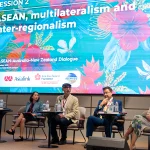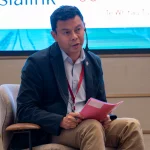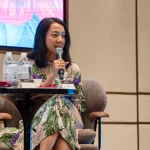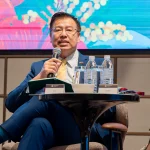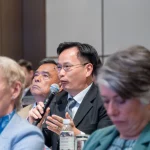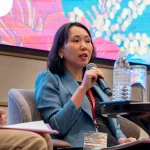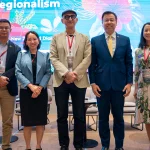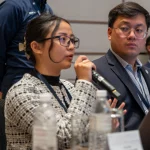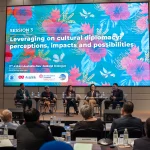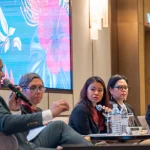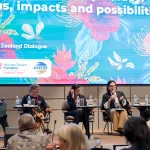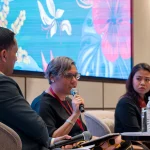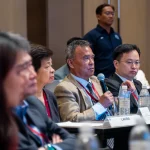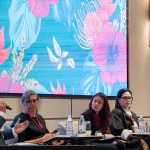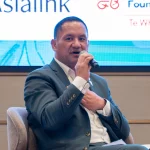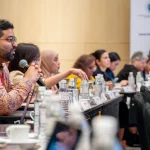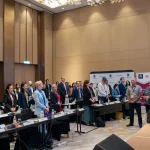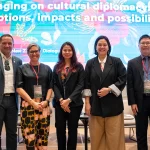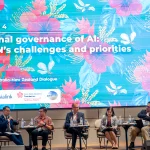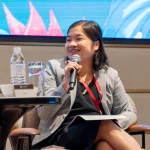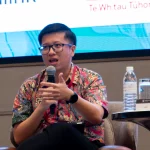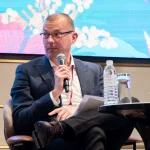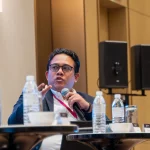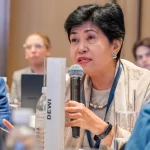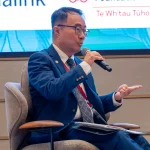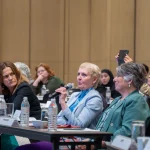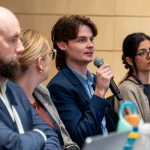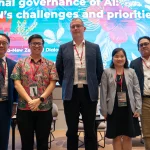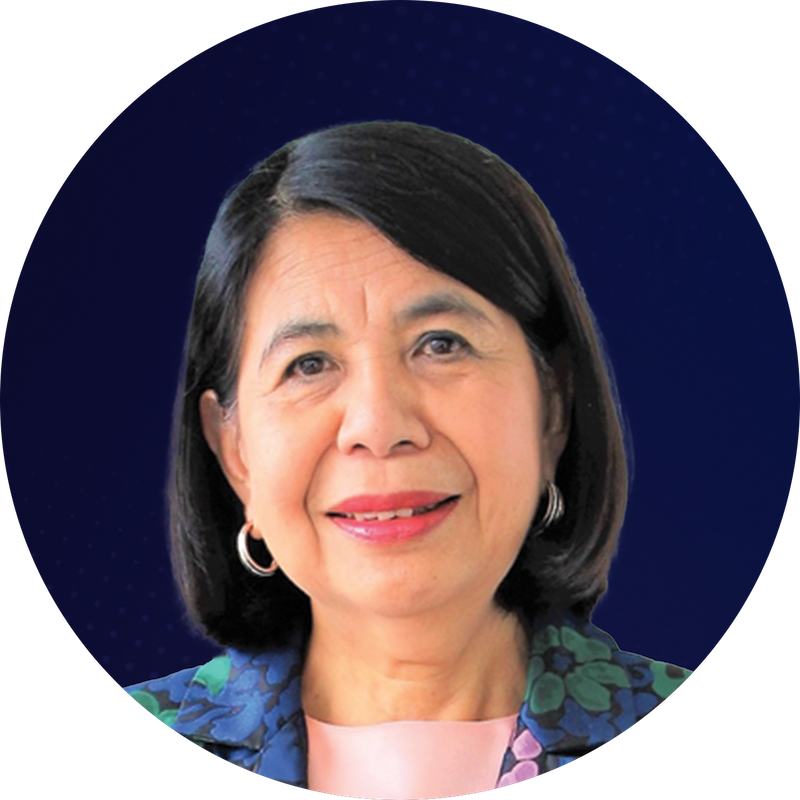The ASEAN-Australia-New Zealand (AANZ) relationship is one strengthened by shared experiences, interests and challenges. Its importance has been highlighted through the annual AANZ dialogue where matters of mutual concern to Southeast Asia and wider region are deliberated.
In its 17th iteration, the dialogue will assess the future of ASEAN’s role and function, including efforts of the current Malaysian chair, inter-regional cooperation and dialogue partner outreach. It will also tackle pressing regional issues like AI governance, transnational crime and opportunities for role building in the Indo-Pacific.
The two-day roundtable will see the participation of policymakers, practitioners, academics, journalists and other thought leaders to promote understanding and encouraging dialogue.
17 September 2025
18 September 2025
Datuk Prof Dr Mohd Faiz Abdullah
Chairman
Institute of Strategic & International Studies (ISIS)
Malaysia
Hon Dame Fran Wilde
Chair
Asia New Zealand Foundation
Martine Letts
Group CEO
Asialink Group
Australia
Malaysia’s ASEAN chairmanship comes at a time marked by both significant challenges and heightened expectations, given its track record and potential to address longstanding regional deadlocks. While Malaysia is attempting to steer the bloc through a critical phase, it must contend with ASEAN’s institutional strengths and limitations. Malaysia’s chairmanship has also coincided with broader questions about ASEAN’s utility amid shifting geopolitical currents and the rise of other geostrategic configurations in the region. While Malaysia has stressed that ASEAN-led mechanisms like the ARF and EAS must be reinvigorated to sustain relevance, this is perhaps easier said than done. How is Malaysia fairing as ASEAN chair? What are its key achievements and persistent challenges? What foundations has this chair provided for the next and how do they impact on ASEAN’s centrality, unity and cohesion?
Moderator:
HE Danielle Heinecke
High Commissioner of Australia to Malaysia
Speaker:
Dato’ Zanariah Zainal Abidin
Director-General
ASEAN Malaysia National Secretariat
Ministry of Foreign Affairs
Malaysia
Discussant:
HE Maria Angela Abrera Ponce
Ambassador of the Republic of Philippines to Malaysia
The re-emergence of a Global South discourse has reignited conversations around the merit of multilateral, sub-regional and regional mechanisms to address global challenges. These could be specific to geographies, populations or needs, or shared across regions. In recent years, ASEAN has boosted inter-regional engagement, fostering institutional links and niche cooperation with IORA, BIMSTEC, AU, GCC and PIF. ASEAN’s engagement with the G20 as a “guest country” during summits, while limited, has its own value in terms of bringing the Southeast Asian “voice” to the table. The same can be said with growing Southeast Asian appetite for BRICS+ engagement. How can ASEAN facilitate sustainable inter-regional cooperation to address shared challenges? What is ASEAN’s current role and utility in its engagement with mechanisms like G20 – and what value can its dialogue partners bring to these equations?
Moderator:
Dr Manjeet Pardesi
Associate Professor
Victoria University of Wellington
New Zealand
Speakers:
Dr Abdul Rahman Yaacob
Academic Adviser
Australian National University
Joanne Lin
Senior Fellow
ASEAN Studies Centre
ISEAS-Yusof Ishak Institute
Singapore
Dr Kitti Prasirtsuk
Professor of International Relations
Thammasat University
Thailand
Dr Shafiah Fifi Muhibat
Deputy Executive Director for Research
Centre for Strategic and International Studies (CSIS)
Indonesia
Cultural diplomacy has emerged as a valuable form of cooperation – facilitating mutual understanding through the exchange of ideas, information, art and language. These initiatives, ranging from people-to-people programmes to academic and artistic collaborations, complement strategic and economic ties by building trust and fostering long-term strategic goodwill. Between ASEAN, Australia and New Zealand, cultural diplomacy has served as a bridge between states and societies. Indigenous and traditional cultures are also powerful tools to foster deeper regional understanding and connection. How is cultural diplomacy perceived by state and non-state actors in our region? Do they have the desired impacts and long-term value? How can we facilitate and enhance initiatives that tap on the cultural currency in our region?
Moderator:
Charlie Rahiri
Hautū Māori (Divisional Manager), Houtina (Māori Division)
Ministry of Foreign Affairs and Trade
New Zealand
Speakers:
Dr Jilda Andrews
Deputy Director
First Nations
National Museum of Australia
Nguyen Ky-Anh
Director of Sustainable Development Directorate
ASEAN Socio Cultural Community Department
ASEAN Secretariat
Dr Wannapa Leerasiri
Faculty of Political Science and Public Administration
Chiang Mai University
Thailand
Since 2024, ASEAN has developed the ASEAN Guide on AI Governance and Ethics and its supplementing document on generative AI. However, not all ASEAN member states have policies or regulations addressing AI safety issues. Meanwhile, geopolitical and economic realities have an impact on AI ambitions in the region. Resource-strapped, most ASEAN countries would opt for lighter and efficient models relevant to economic and energy needs. This reality tries to balance safe deployment of AI while navigating through the effects of geopolitical and technological competition. What are the approaches in ASEAN for AI safety? What are the context and considerations driving ASEAN’s decisions on AI governance? How could ASEAN deploy AI safely while safeguarding regional interests?
Moderator:
Sami Mäkeläinen
Senior Research Affiliate
Institute for the Future
Australia
Speakers:
Benjamin Ang
Chief Data Officer (Policy)
AI Singapore (AISG)
Calvin Woo
Director
Malaysia Centre for the Fourth Industrial Revolution (MYCentre4IR)
Malaysia
Tran Vu Ha Minh
Founder and CEO
Humane-AI
Vietnam
Wahyudi Djafar
Executive Director
Catalyst Policy Works
Indonesia
19 September 2025
Marking five decades of partnership, ASEAN-New Zealand relations have evolved from development-focused cooperation to a strategic relationship grounded in mutual respect, shared values and the desire for regional stability. Over the years, New Zealand has actively supported ASEAN’s community-building efforts through education, capacity building, disaster resilience and people-to-people ties. As both partners navigate a rapidly shifting Indo-Pacific, this anniversary provides a moment to reflect on milestones, assess emerging challenges and identify pathways for future cooperation. What have been the key achievements that define the ASEAN-New Zealand partnership to date? How can both sides adapt to current geopolitical shifts? Are there niche areas of cooperation that ASEAN and New Zealand can explore?
Moderator:
Dr Shafiah Fifi Muhibat
Deputy Executive Director for Research
Centre for Strategic and International Studies (CSIS)
Indonesia
Speaker:
HE Joanna Anderson
Ambassador of New Zealand to ASEAN
Discussants:
Dr Hoang Oanh
Research Fellow
Institute for Foreign Policy and Strategic Studies
Diplomatic Academy of Vietnam
Vithaya Xayavong
Director-General
Institute of Foreign Affairs, Ministry of Foreign Affairs
Lao People’s Democratic Republic
There is an urgent need to respond rapidly to growing transnational crime syndicates in the region, which include both scam centres and human-trafficking networks. Challenges in refining and integrating relevant ASEAN mechanisms and activities continue to hamper a holistic and effective regional response. How can ASEAN better align its regional objectives and mechanisms with existing capacities and cooperative frameworks? Could this be done while being mindful of existing apprehensions of non-intervention? How can dialogue partners assist in shaping the regulatory frameworks and cooperative mechanisms to enhance ASEAN’s capacity in addressing transnational crime?
Moderator:
Dr James To
Manager
South Island and Track II Programme
Asia New Zealand Foundation
Speakers:
Aizat Shamsuddin
Founder and Director
Initiative to Promote Tolerance and Prevent Violence (INITIATE.MY)
Malaysia
HE Dr Bhanubhatra Jittiang
Thailand Representative to ASEAN Intergovernmental Commission on Human Rights (AICHR)
Jason Tower
Senior Expert
Global Initiative against Transnational Organizsed Crime (GI-TOC)
Thailand
Dr Marika McAdam
Independent Consultant
Australia
As the Indo-Pacific undergoes rapid transformation, it is crucial that regional actors, including ASEAN, Australia and New Zealand, work towards shaping their distinct roles in the region to ensure strategic relevance. For each actor, an intent focus on specific areas of cooperation based on strengths, values, strategic and normative positions will be a key enabler to role-building in the region. While ASEAN continues to enhance its position as a reliable convening power through sustained utility of ASEAN-led mechanisms, both Australia and New Zealand, as dialogue partners, could assume roles ranging from security provider to development partner, inter-regional connector and economic balancer – considering the recently upgraded AANZFTA. How do ASEAN, Australia, and New Zealand define their roles in a contested Indo-Pacific? Where do their interests align or diverge, and how can strategic trust and complementarity guide future collaboration? Can deeper economic cooperation anchor regional stability?
Moderator:
HE Pou Sothirak
Distinguished Senior Adviser
Cambodian Centre for Regional Studies
Speakers:
Dr Joel Ng
Senior Fellow and Head of Centre for Multilateralism Studies
S Rajaratnam School of International Studies (RSIS)
Singapore
HE Laura Quiambao-Del Rosario
Senior Foreign Affairs Adviser
Department of Foreign Affairs
Philippines
Martine Letts
Chief Executive Officer
Asialink Group
Australia
Dr Manjeet Pardesi
Associate Professor
School of History, Philosophy, Political Science and International Relations
Victoria University of Wellington
New Zealand



